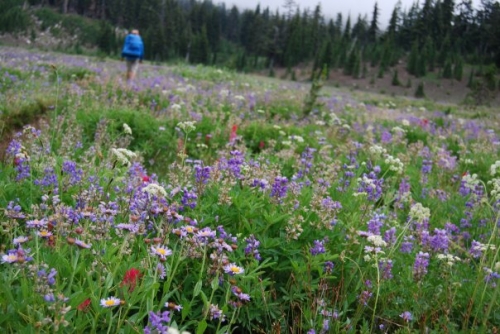Studies show that spending more time in natural settings—forests, parks, and places with trees—improves the immune system. According to an article in the New York Times, this is due to both stress reduction and chemicals that plants emit to protect them from rotting and insects called phytoncides. Exposure to phytoncides appears to lower blood pressure, pulse rate, and cortisol (a stress hormone), among other things. Many of these studies are taking place in Japan, where the practice of visiting nature parks for therapeutic effect is called Shinrin-yoku. Many studies demonstrate the positive effects of being outdoors. A recent one in the Environmental Science and Technology journal holds that even as little as five minutes of exercise in green space can vastly improve mental health. Read the BBC article. More than likely, these studies are just confirming what you already know. They’re like the studies that demonstrate the benefits of meditation—if they help some people get into it, then great. While they’re surely beneficial to some, these studies make me think of the Walt Whitman poem “When I Heard the Learn’d Astronomer.”
When I heard the learn’d astronomer; When the proofs, the figures, were ranged in columns before me; When I was shown the charts and the diagrams, to add, divide, and measure them; When I, sitting, heard the astronomer, where he lectured with much applause in the lecture-room, How soon, unaccountable, I became tired and sick; Till rising and gliding out, I wander’d off by myself, In the mystical moist night-air, and from time to time, Look’d up in perfect silence at the stars.
Thank you for subscribing to Tricycle! As a nonprofit, we depend on readers like you to keep Buddhist teachings and practices widely available.
